In the world of photography, there are many artists who have made a significant impact on the medium. One of these artists is Carrie Mae Weems, and her work has been celebrated and studied for decades. In particular, her Kitchen Table Series from 1990 is a powerful collection that delves into themes of African American identity, domestic life, and the experiences of black women. Let's take a closer look at this iconic series and the artist behind it.Carrie Mae Weems: Exploring Identity Through Photography
The Kitchen Table Series is a collection of photographs that features Weems herself as the central figure, depicting different scenes and scenarios that occur at a kitchen table. The series consists of 20 photographs, each capturing a different moment and emotion. Through this series, Weems explores the complexities of domestic life and how it shapes our identities. The kitchen table is often seen as the heart of the home, a place where families gather to eat, talk, and connect. In Weems' series, the table becomes a stage for various relationships, struggles, and moments of contemplation. Through her use of self-portraits, Weems invites viewers into her personal experiences and invites them to reflect on their own relationships and identities within the context of domestic life.The Kitchen Table Series: A Glimpse into Domestic Life
As a black woman herself, Weems uses her art to challenge societal norms and stereotypes surrounding black women. In the Kitchen Table Series, she portrays black women as multidimensional and complex individuals, rather than the one-dimensional portrayals often seen in mainstream media. Weems' photographs showcase the beauty, strength, and vulnerability of black women, and the struggles they face in a society that often marginalizes them. Through her use of lighting, composition, and facial expressions, Weems captures the nuances of the black female experience. From the quiet moments of solitude to the moments of defiance and strength, each photograph tells a unique story and sheds light on the diverse experiences of black women.Unveiling the Black Female Experience
The Kitchen Table Series is not only a visual feast, but it also raises important questions about feminism and identity. Weems challenges traditional notions of femininity and the roles that women are expected to play in society. Through her photographs, she questions the idea of a woman's place being confined to the kitchen, and instead, presents the kitchen table as a space for empowerment and self-discovery. Furthermore, Weems also delves into the complexities of identity, particularly for black women. She challenges the notion of a singular, monolithic black experience and instead showcases the diversity within the black community. Through her work, she invites viewers to question their own identities and the various factors that shape them.Feminism and Identity: Themes Explored in Weems' Work
The Kitchen Table Series has had a profound impact on the world of photography and art in general. It has been exhibited in prestigious galleries and museums around the world, and Weems has received numerous accolades for her work. In addition, the series has sparked important conversations about race, gender, and identity, and has inspired other artists to explore similar themes in their own work. As we continue to grapple with issues of representation, inequality, and social justice, Weems' Kitchen Table Series remains a powerful and relevant body of work. It serves as a reminder of the importance of art in challenging societal norms and promoting understanding and empathy.The Impact of Carrie Mae Weems' Kitchen Table Series
The Kitchen Table Series by Carrie Mae Weems is a thought-provoking and visually stunning collection that explores themes of African American identity, domestic life, and the experiences of black women. Through her use of self-portraits and her masterful storytelling, Weems invites viewers to contemplate their own identities and the complexities of the world we live in. This series is a testament to the power of art in sparking meaningful conversations and promoting social change.In Conclusion
The Powerful Message of Carrie Mae Weems' 1990 Kitchen Table Series

Exploring Identity and Domestic Spaces
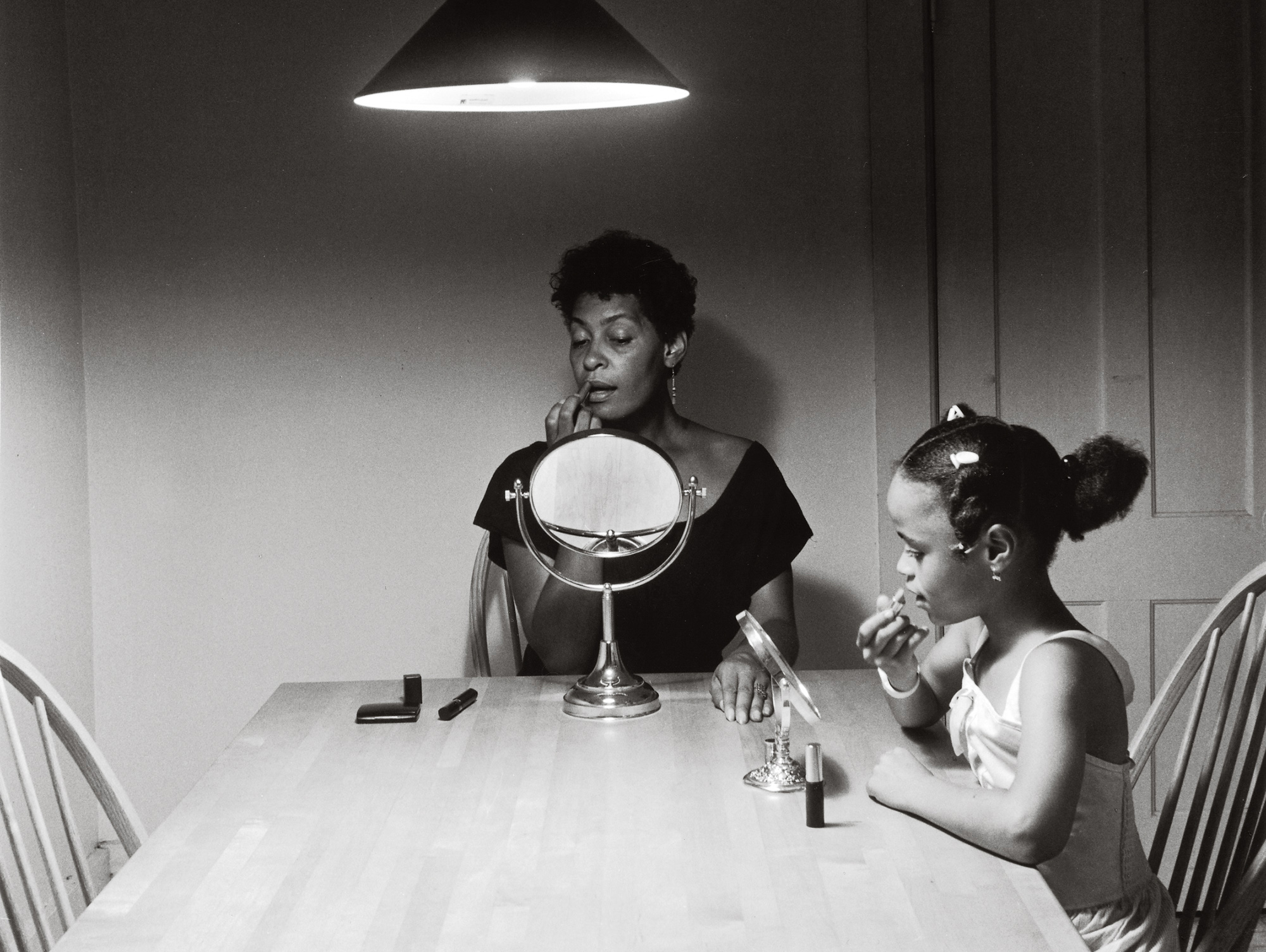 Carrie Mae Weems' 1990 Kitchen Table Series is a thought-provoking and powerful collection of photographs that challenges societal norms and expectations surrounding race, gender, and domesticity. Through a series of 20 black and white photographs, Weems captures intimate moments in a kitchen, a space traditionally associated with women and domestic duties. However, these photographs go beyond simply portraying domestic scenes; they convey a deeper message about identity, relationships, and power dynamics within the home.
The kitchen table
is a central symbol in Weems' series, representing a space where women are often confined to and expected to fulfill certain roles. The use of black and white photography adds a timeless quality to the images, emphasizing how these societal expectations have persisted throughout history. Weems herself is captured in many of the photographs, challenging the idea of a passive female subject and instead asserting her presence and agency in the domestic space.
One of the most striking aspects of the Kitchen Table Series is the way
Weems incorporates text
into the photographs. Through handwritten words and phrases, she adds layers of meaning and commentary to the images. In one photograph, the words "You became a scientific profile" are written across the image, highlighting the ways in which Black bodies have been objectified and studied throughout history. This use of text adds a powerful and personal element to the series, inviting viewers to consider the experiences and perspectives of Black women in domestic spaces.
Through the Kitchen Table Series,
Weems challenges societal expectations
and confronts issues of race, gender, and power in a subtle yet impactful way. The series has been praised for its ability to capture the complexities of identity and relationships within the domestic sphere, while also shedding light on larger societal issues. It serves as a reminder that the personal is political and that our homes and domestic spaces can be sites of both comfort and oppression.
In conclusion, Carrie Mae Weems' 1990 Kitchen Table Series is a powerful and thought-provoking collection that uses photography and text to challenge societal norms and expectations surrounding identity and domesticity. Through its timeless imagery and poignant messages, the series continues to resonate with viewers and spark important conversations about race, gender, and power dynamics within the home.
Carrie Mae Weems' 1990 Kitchen Table Series is a thought-provoking and powerful collection of photographs that challenges societal norms and expectations surrounding race, gender, and domesticity. Through a series of 20 black and white photographs, Weems captures intimate moments in a kitchen, a space traditionally associated with women and domestic duties. However, these photographs go beyond simply portraying domestic scenes; they convey a deeper message about identity, relationships, and power dynamics within the home.
The kitchen table
is a central symbol in Weems' series, representing a space where women are often confined to and expected to fulfill certain roles. The use of black and white photography adds a timeless quality to the images, emphasizing how these societal expectations have persisted throughout history. Weems herself is captured in many of the photographs, challenging the idea of a passive female subject and instead asserting her presence and agency in the domestic space.
One of the most striking aspects of the Kitchen Table Series is the way
Weems incorporates text
into the photographs. Through handwritten words and phrases, she adds layers of meaning and commentary to the images. In one photograph, the words "You became a scientific profile" are written across the image, highlighting the ways in which Black bodies have been objectified and studied throughout history. This use of text adds a powerful and personal element to the series, inviting viewers to consider the experiences and perspectives of Black women in domestic spaces.
Through the Kitchen Table Series,
Weems challenges societal expectations
and confronts issues of race, gender, and power in a subtle yet impactful way. The series has been praised for its ability to capture the complexities of identity and relationships within the domestic sphere, while also shedding light on larger societal issues. It serves as a reminder that the personal is political and that our homes and domestic spaces can be sites of both comfort and oppression.
In conclusion, Carrie Mae Weems' 1990 Kitchen Table Series is a powerful and thought-provoking collection that uses photography and text to challenge societal norms and expectations surrounding identity and domesticity. Through its timeless imagery and poignant messages, the series continues to resonate with viewers and spark important conversations about race, gender, and power dynamics within the home.

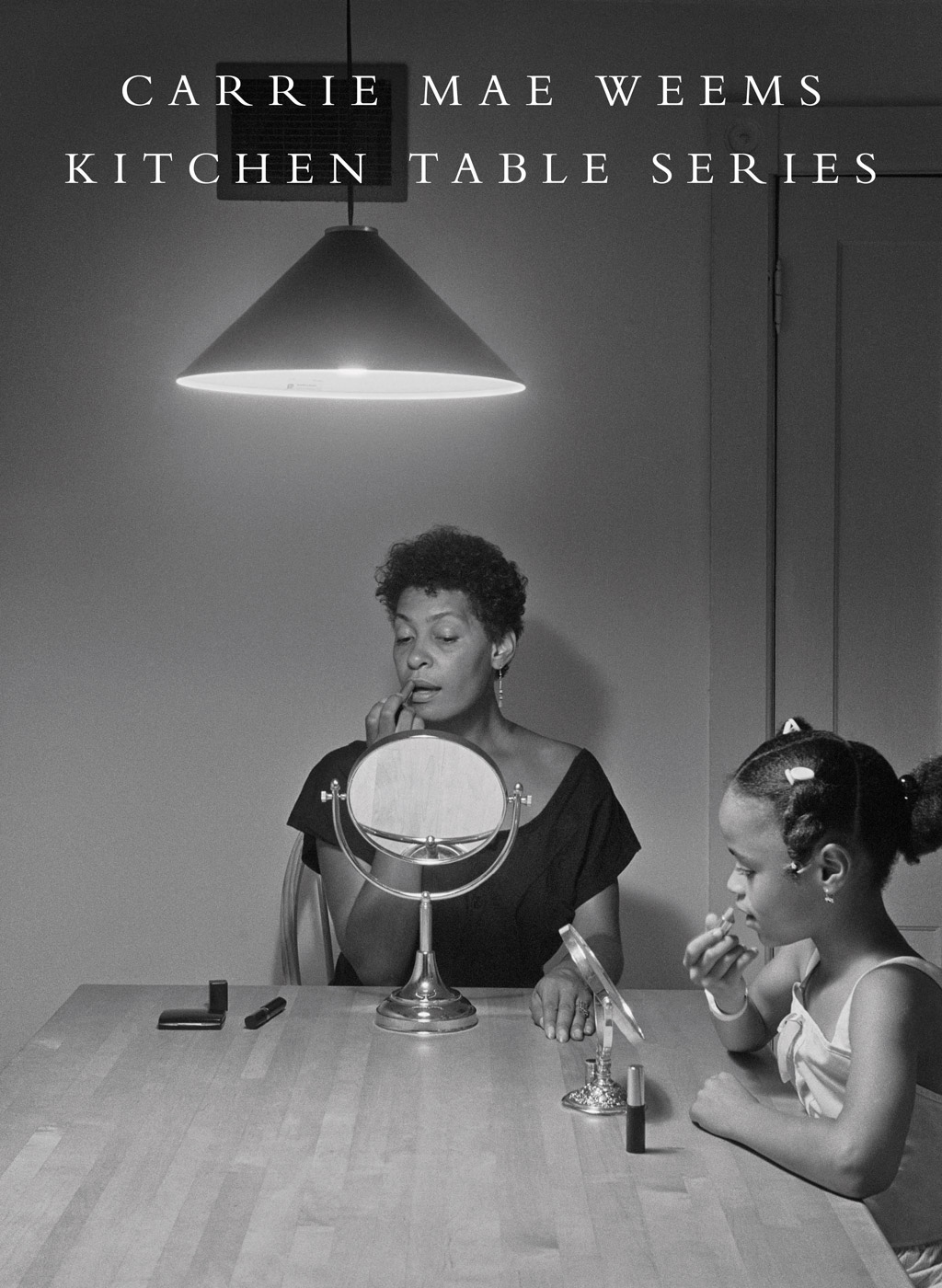









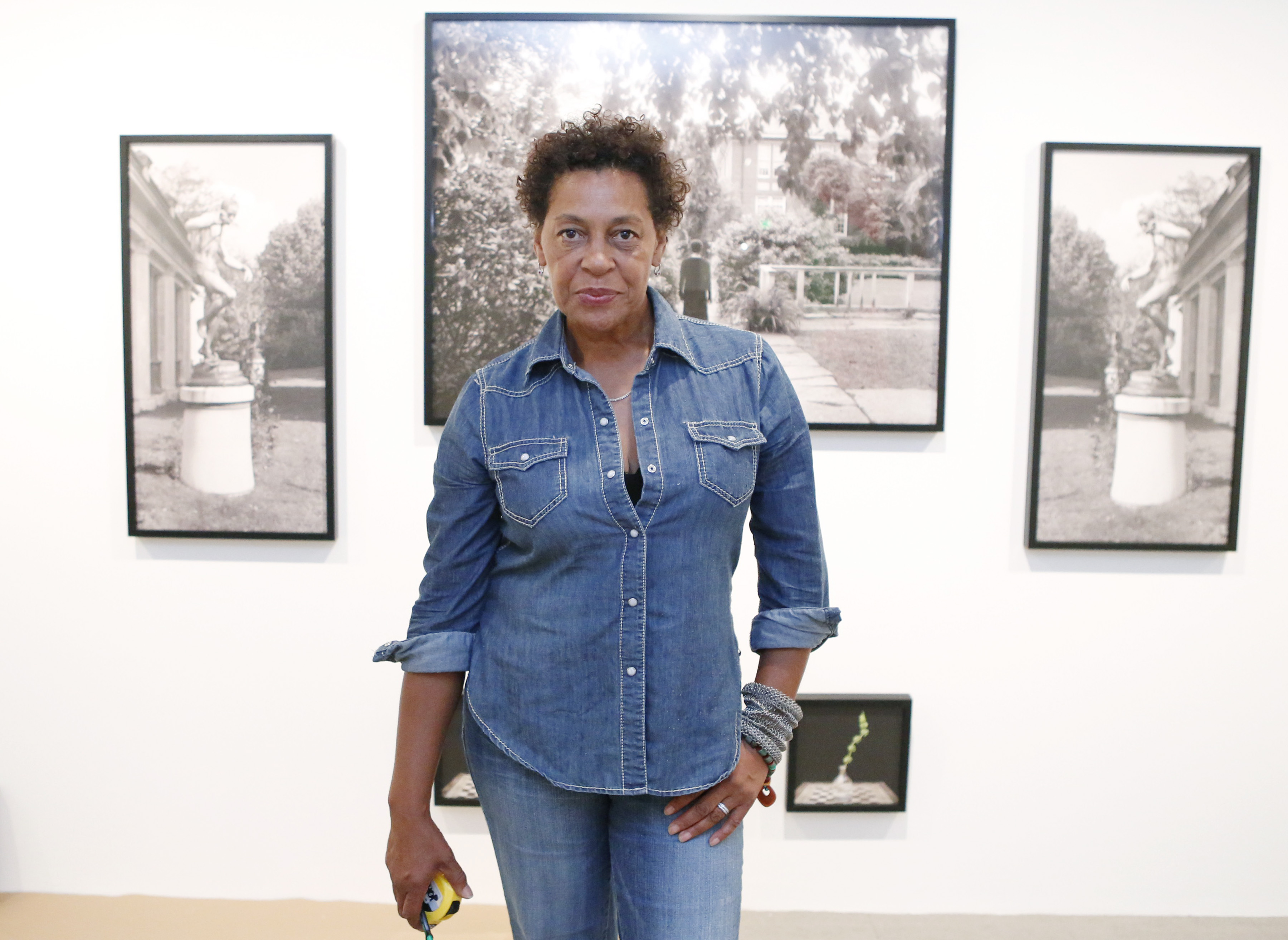










.jpg)

























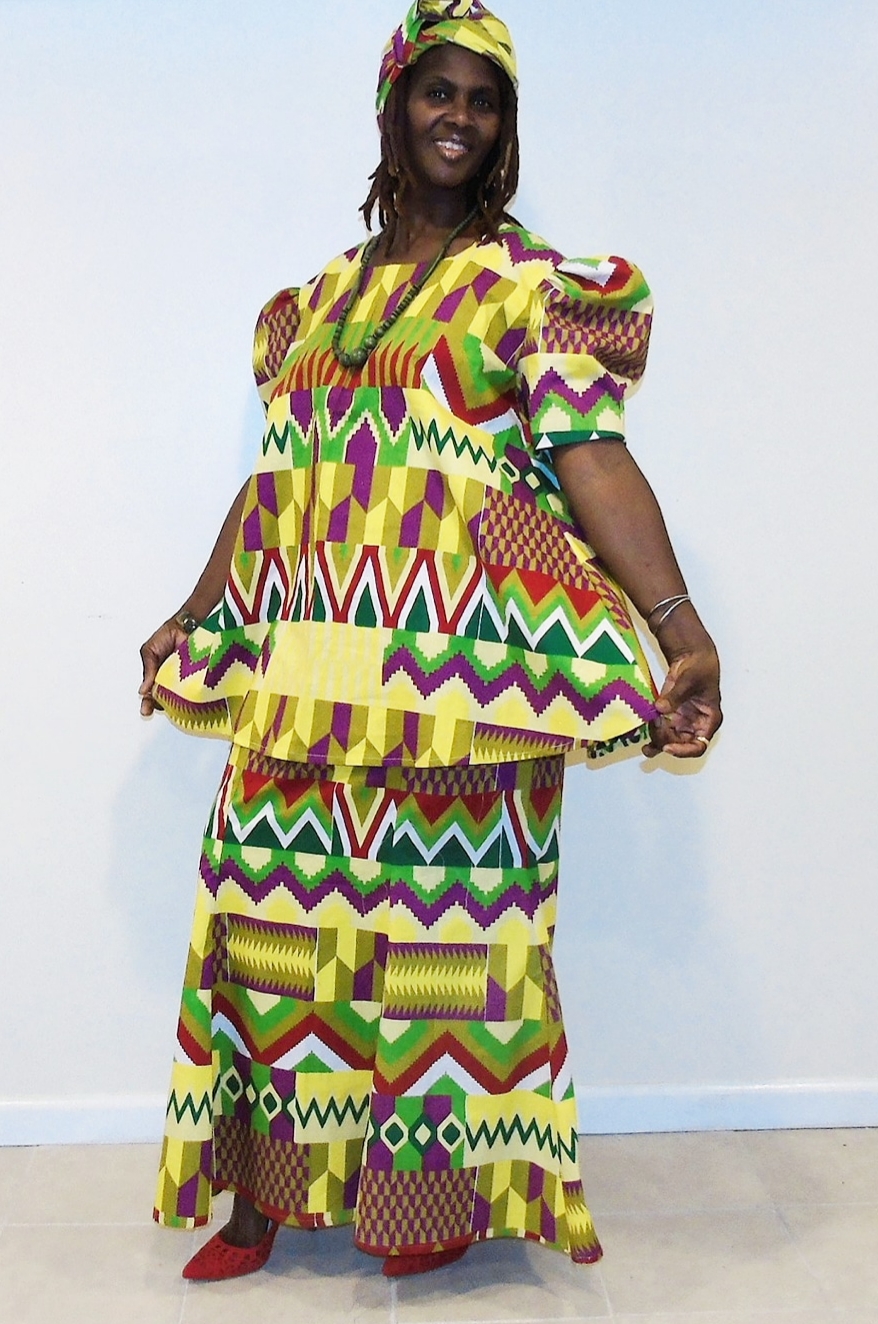

:max_bytes(150000):strip_icc()/MLK-589c7eaf3df78c4758d16d97.jpg)


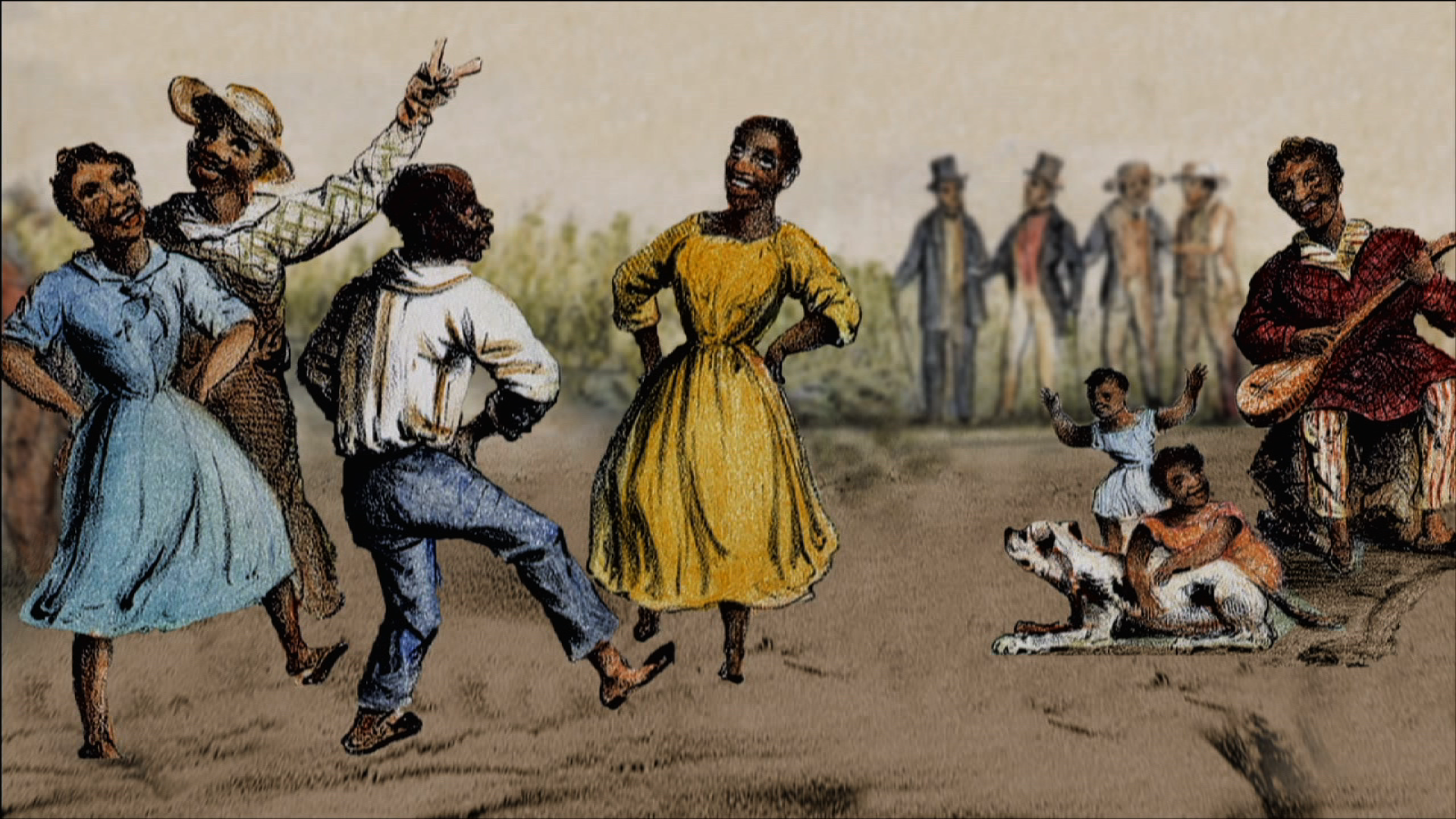
:max_bytes(150000):strip_icc()/Maya-Angelou-589c7dbe3df78c4758cf0abe.jpg)
















